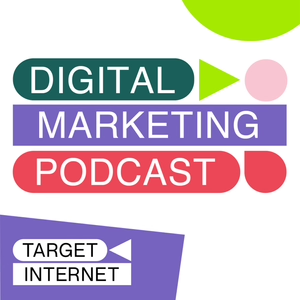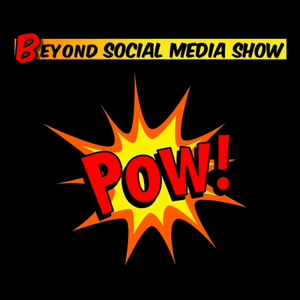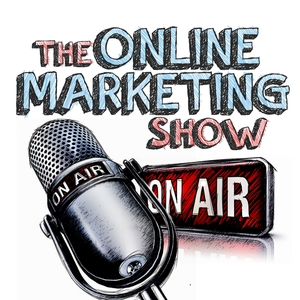
Infinite Web Chat | Episode 1
06/26/17 • -1 min
Welcome to Infinite Web Chat! On Episode 1 we are talking all things SEO (Search Engine Optimization). Click above to listen or you can read the transcript below. You can also subscribe on iTunes »
Here are Some of the Highlights:- SEO is search engine optimization, and it’s the practice of increasing quality and quantity of traffic to your website through organic search engine.
- Keyword research is KEY!
- Search engines are expecting blog content to be fresh, relevant and longer – 1000 keywords is standard and 2000 or more is expected in highly competitive markets.
- Being listed in online business directories is an becoming increasingly important factor in your SEO. Our IWDS tool can help you get listed in 50+ directories and your data submitted to the search engines correctly PLUS 200+ data aggregators. Contact us for a baseline report to see where you currently rank PLUS $150 off for our podcast listeners.
Next week we will be talking about PPC (Pay Per Click) marketing.
Amy DeLardi: Hi, I’m Amy DeLardi with Infinite Web Designs, and I have LeeAnn my SEO and social media specialist here with me today. Today’s topic is SEO, and we’re going to share a little bit about our knowledge of search engine optimization, and some of the tips and tricks that we use, or we know that are important to use. LeeAnn why don’t you say hi, and we’ll get started.
LeeAnn Holmberg: Hey there, nice to visit with you today, and I’m excited to talk about SEO, and see what all we can share.
Amy DeLardi: Great. You want to explain what SEO stands for, and a little bit about that before we start.
LeeAnn Holmberg: You bet. SEO is search engine optimization, and it’s the practice of increasing quality and quantity of traffic to your website through organic search engine. We start by targeting keywords that, and then researching those keywords. Which is really the foundation, the most important part is not necessarily what keywords you think that your audience is looking for. But taking that list and then really refining it and seeing what people are actually searching. Then going about optimizing your website, so that search engine pull your information when users are out there looking.
Amy DeLardi: That’s a great point, LeeAnn, and we get that all the time, right? When we’re working with clients, and they’ll send us a list of keywords, which we encourage, and we ask them to do so, because they know their business better than we do. But often times the keywords that they send us, and the keywords that we do a little bit of research on have low search volume. You want to talk a little bit about that research, and what the low search volume means, and explain the difference between low search volume and high search volume.
LeeAnn Holmberg: Sure. We use tools online, and some of them are free, some of them are pay. But we go out and once a client gives us a list of what they think their keywords are we take that, we have an internal discussion, kind of like what we’re doing right now, what we think we should add to that list. Then use those tools to see numbers, how many people are actually searching for a keyword, or a keyword phrase. We start to hone in on the list of keywords that are getting the higher search results. Because if your website is optimized and optimized well for a keyword, or keyword phrase that doesn’t have high search volume, then it doesn’t do you a lot of good. A lot of times we run into clients you want this extensive list of keywords, or they want to really focus on this one thing, and don’t understand that that’s not really what the end user is out there searching. We try to educate them, and try to get them to focus on using keywords and keyword strings that are highly searched, and then we can optimize your website for that, so that it matches what people, end users are actually going out and typing in their search engines. Whether it’s on their computer...
Welcome to Infinite Web Chat! On Episode 1 we are talking all things SEO (Search Engine Optimization). Click above to listen or you can read the transcript below. You can also subscribe on iTunes »
Here are Some of the Highlights:- SEO is search engine optimization, and it’s the practice of increasing quality and quantity of traffic to your website through organic search engine.
- Keyword research is KEY!
- Search engines are expecting blog content to be fresh, relevant and longer – 1000 keywords is standard and 2000 or more is expected in highly competitive markets.
- Being listed in online business directories is an becoming increasingly important factor in your SEO. Our IWDS tool can help you get listed in 50+ directories and your data submitted to the search engines correctly PLUS 200+ data aggregators. Contact us for a baseline report to see where you currently rank PLUS $150 off for our podcast listeners.
Next week we will be talking about PPC (Pay Per Click) marketing.
Amy DeLardi: Hi, I’m Amy DeLardi with Infinite Web Designs, and I have LeeAnn my SEO and social media specialist here with me today. Today’s topic is SEO, and we’re going to share a little bit about our knowledge of search engine optimization, and some of the tips and tricks that we use, or we know that are important to use. LeeAnn why don’t you say hi, and we’ll get started.
LeeAnn Holmberg: Hey there, nice to visit with you today, and I’m excited to talk about SEO, and see what all we can share.
Amy DeLardi: Great. You want to explain what SEO stands for, and a little bit about that before we start.
LeeAnn Holmberg: You bet. SEO is search engine optimization, and it’s the practice of increasing quality and quantity of traffic to your website through organic search engine. We start by targeting keywords that, and then researching those keywords. Which is really the foundation, the most important part is not necessarily what keywords you think that your audience is looking for. But taking that list and then really refining it and seeing what people are actually searching. Then going about optimizing your website, so that search engine pull your information when users are out there looking.
Amy DeLardi: That’s a great point, LeeAnn, and we get that all the time, right? When we’re working with clients, and they’ll send us a list of keywords, which we encourage, and we ask them to do so, because they know their business better than we do. But often times the keywords that they send us, and the keywords that we do a little bit of research on have low search volume. You want to talk a little bit about that research, and what the low search volume means, and explain the difference between low search volume and high search volume.
LeeAnn Holmberg: Sure. We use tools online, and some of them are free, some of them are pay. But we go out and once a client gives us a list of what they think their keywords are we take that, we have an internal discussion, kind of like what we’re doing right now, what we think we should add to that list. Then use those tools to see numbers, how many people are actually searching for a keyword, or a keyword phrase. We start to hone in on the list of keywords that are getting the higher search results. Because if your website is optimized and optimized well for a keyword, or keyword phrase that doesn’t have high search volume, then it doesn’t do you a lot of good. A lot of times we run into clients you want this extensive list of keywords, or they want to really focus on this one thing, and don’t understand that that’s not really what the end user is out there searching. We try to educate them, and try to get them to focus on using keywords and keyword strings that are highly searched, and then we can optimize your website for that, so that it matches what people, end users are actually going out and typing in their search engines. Whether it’s on their computer...
Next Episode

Infinite Web Chat | Episode 2
https://infinitewebdesigns.com/wp-content/uploads/2017/06/episode2.mp3
Welcome back to Infinite Web Chat! Last week we talked SEO (Search Engine Optimization).
On Episode 2 we are talking all things PPC (Pay Per Click). Click to listen above or you can read the transcript below. You can also subscribe on iTunes »
Here are Some of the Highlights:- Pay per click marketing should be viewed is a long-term investment.
- PPC can be useful for several different goals, whether you’re launching a new service and need awareness or you’re launching a new website and want to drive traffic quickly and raise awareness quickly to get people to your website to learn about your new products or services.
- You must have clearly defined goals, content and a funnel for your PPC campaign.
- Define your target audience, keywords and budget.
- Ad campaigns must have a clear call to action.
- Tracking and analytics is key to determining your ROI and adjustments that need to be made.
- Following Google’s best practices will ensure you receive more [quality] traffic.
Episode Links and Resources:
Amy DeLardi: Welcome to episode two. This is Amy and LeeAnn. Last week, episode one, we talked about organic SEO. This week we are going to talk about Google advertising and pay-per-click campaigns. LeeAnn, you with me?
LeeAnn Holmberg: Yes, I’m with you. Hi, everybody.
Amy DeLardi: Before we get into the best practices and the budget and the quality score and some of the different things that we’re prepared to talk about today, let’s just talk about when to use Google pay-per-click advertising. LeeAnn, do you want to answer that first and then I’ll give my perspective on it?
LeeAnn Holmberg: Sure. It’s important, if you’re going to use PPC, pay-per-click marketing, that you are in it for the long game. I think it is something, when we are working with clients, we recommend a minimum of six months and we would love to see them commit to at least a year before we can have a fully optimized campaign and seeing them reach the goals that we define in the very beginning.
Amy DeLardi: Yeah. Often time people think it’s a quick fix and so they really don’t have the budget for it, if they’re a smaller business. They don’t understand that some keywords can be very competitive, which translates to very pricey, so they don’t have a budget to compete over a long period of time. We could get more into that in a little bit. Last week, again, we talked about organic SEO. I prefer that method of attracting leads and traffic to your website, but sometimes you need a more immediate gratification, whether you’re launching a new service and you need awareness to it or you’re launching a new website and you really want to drive traffic quickly and raise awareness quickly and get people to your website to learn about your new products or services.
That’s when I find that Google pay-per-click or PPC is a good alternative solution to driving more of that quick traffic and leads, especially if you have a certain conversion or a certain goal that you’re trying to hit. Often times I like to consult people to run that in tandem with organic SEO strategies. Again, talked about that in episode one. Have a listen if haven’t to that. Again, I think that Google pay-per-click has a use definitely.
It’s more of that immediate gratification or a tougher arena to play in or to get organic ranking in, but it also is competitive and it can get costly. Let’s get into best practices. You’ve decided that you really need to pay to play and you really need to get awareness to a product or service quickly and you’ve decided that you’re going to use Google pay-per-click as a strategy to do so. Where do you start?
LeeAnn Holmberg: Sure. I would suggest the very first thing is something you’ve already touched on, and that’s having a very clearly defined goal. If you’re going to run a campaign, it really needs to be focused on one specific goal. If you have more than one, then we would suggest, obviously, more than one campaign. It’s so important because we want the end user to have one experience and we need to keep them on track to do what we want them to do. We don’t want to muddy the water.
Your goal, it can be to drive traffic. Like Amy...
If you like this episode you’ll love
Episode Comments
Generate a badge
Get a badge for your website that links back to this episode
<a href="https://goodpods.com/podcasts/infinite-web-chat-5594/infinite-web-chat-episode-1-204379"> <img src="https://storage.googleapis.com/goodpods-images-bucket/badges/generic-badge-1.svg" alt="listen to infinite web chat | episode 1 on goodpods" style="width: 225px" /> </a>
Copy




